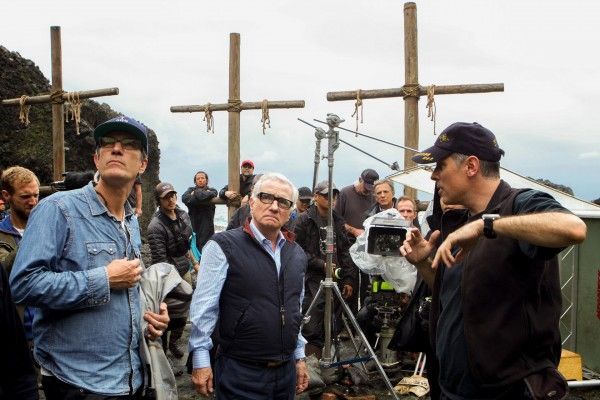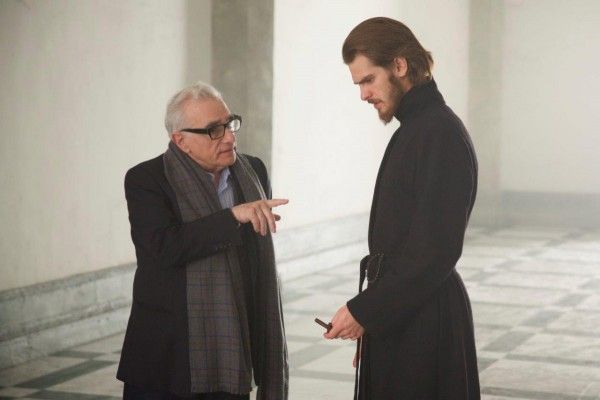For some, the ongoing debate between auteurs and Marvel movies may seem tedious, and for those people, I have good news: you can read literally anything else on the Internet. This isn’t the only conversation. But if you’re like me and you do find this discourse interesting (I’ve already written about it here) because of how it reflects the current tensions in Hollywood about what kind of movies get made and who gets to make them, then you’ll enjoy reading Martin Scorsese’s recent New York Times op-ed.
In the op-ed, Scorsese elaborates about his position that Marvel movies “aren’t cinema” explaining that he’s fully aware there’s a generational gap, but he also believes that true cinema involves an element of risk to create a revelation, “aesthetic, emotional and spiritual revelation,” adding “It was about confronting the unexpected on the screen and in the life it dramatized and interpreted, and enlarging the sense of what was possible in the art form.”
For Scorsese, the issue isn’t whether or not superhero movies are “good” but rather what their presence (and he expands his argument to include “other franchise films”) does to modes of exhibition. He writes:
“In many places around this country and around the world, franchise films are now your primary choice if you want to see something on the big screen. It’s a perilous time in film exhibition, and there are fewer independent theaters than ever. The equation has flipped and streaming has become the primary delivery system. Still, I don’t know a single filmmaker who doesn’t want to design films for the big screen, to be projected before audiences in theaters.”
For those who counter that this is what the marketplace demands, Scorsese counters “It’s a chicken-and-egg issue. If people are given only one kind of thing and endlessly sold only one kind of thing, of course they’re going to want more of that one kind of thing.” He concludes his argument by saying that franchise films like Marvel will eventually squeeze out the bold new voices and all that will be left is “audiovisual entertainment”:
“The situation, sadly, is that we now have two separate fields: There’s worldwide audiovisual entertainment, and there’s cinema. They still overlap from time to time, but that’s becoming increasingly rare. And I fear that the financial dominance of one is being used to marginalize and even belittle the existence of the other.
For anyone who dreams of making movies or who is just starting out, the situation at this moment is brutal and inhospitable to art. And the act of simply writing those words fills me with terrible sadness.”
I sympathize with Scorsese and I think he makes a good point that art involves risk while business is usually about minimizing risk. Art is also about discomfort, and franchise films are meant to comfort audiences, so they’ll keep coming back and also buy loads of merchandise. But I also think Scorsese is in a bit of a bubble because he has missed one key factor in the theatrical distribution model that’s preventing audiences from seeking more than Marvel movies.
Theatrical distribution—and I mean this largely in reference to the major chains like Regal, AMC, Cinemark, et al.—sucks. It’s a bad investment for your entertainment dollar, and I’m willing to bet it’s been a minute since Martin Scorsese strolled down to the local Multiplex 24 and bought a ticket. If he had, he may have noticed that while ticket prices have gone up with inflation, wages remain low, so a ticket is more expensive. He would then notice that the concessions are equally expensive despite their relative low quality. After Scorsese pays $20 for a popcorn and a soda, he sits down in his seat only to discover that the film is being improperly projected whether it’s with poor masking or low lighting. Scorsese tries to look past this, but eventually he sees that the person in the row ahead of him is happily texting away throughout the entire movie as they intermittently chat with their friend.
This is the theatrical experience in 2019—overpriced and underwhelming. Why not just wait three months for the movie to come to OnDemand and in the meantime you have plenty of other entertainment options you can enjoy in the comfort of your own home. If you are going to pay a lot of money for a theatrically released movie, you want the safest bet possible. Marvel movies are that safe bet. It’s a trustworthy brand. The movies are fun and colorful.
Scorsese is directing his ire in the wrong direction. It’s not what the studios are making that’s the problem; it’s that the cost of entry has become too high. Even if tomorrow every studio stopped making franchise films and put all their efforts into auteur-driven pictures, I doubt people would flock to cinemas to see those movies just because they’re there. They’d stay home and watch a comforting rom-com on Netflix or a true crime series on Hulu or a prestige drama on Amazon. The barrier isn’t that franchise film take up too many screens; it’s that the cost of admission is too high for anything that doesn’t comfort



